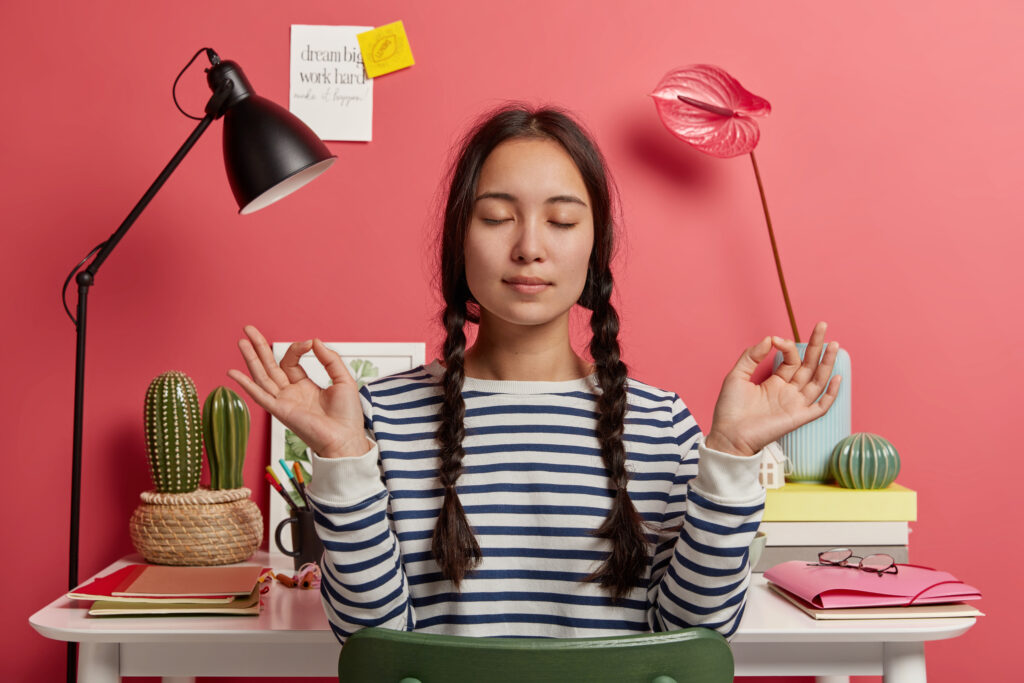Stress and anxiety have become an unavoidable part of modern life. From work deadlines to
personal responsibilities, everyday challenges can take a toll on mental well-being. However,
practicing simple self-care routines can help reduce stress, promote relaxation, and restore
emotional balance.
Self-care is not just about luxury spa days or vacations—it’s about daily habits that support
mental health. This blog explores science-backed self-care routines that are easy to implement
and highly effective in relieving stress and anxiety.
- Understanding the Link Between Self-Care and Mental Wellness
Many people underestimate the power of self-care in managing stress and anxiety. However,
research shows that simple daily routines can:
- Lower cortisol levels (the stress hormone)
- Improve mental clarity and focus
- Enhance emotional resilience
- Reduce physical symptoms of stress (fatigue, headaches, muscle tension)
By consistently practicing self-care, you create a strong mental and emotional foundation to
handle daily challenges effectively.
2.Simple Self-Care Routines for Stress and Anxiety Relief
To effectively manage stress, it’s essential to incorporate small yet impactful self-care habits
into your daily routine.
A. Morning Self-Care Rituals to Start the Day Right
Starting your day with a calm and mindful approach sets a positive tone for the entire day.
- Mindful Breathing or Meditation (5-10 mins): Helps reduce morning anxiety and
improves focus. - Hydrate with Warm Water & Lemon: Flushes out toxins and refreshes the mind.
- Stretching or Light Yoga: Releases tension and boosts circulation.
- Chanting for Mental Clarity: Scientific studies suggest that chanting mantras like “Om”
can improve concentration, reduce stress hormones, and enhance emotional stability.
The vibration of sounds during chanting activates the vagus nerve, which regulates
relaxation responses in the body. - Avoid Immediate Screen Time: Reduces information overload and prevents morning
stress spikes.
Scientific studies reveal that chanting activates the vagus nerve, reducing stress and promoting
emotional balance. It enhances gamma wave activity in the brain, which is linked to improved
focus and relaxation. Moreover, controlled breathing during chanting increases oxygen supply to
the brain, reducing cortisol levels. Incorporating chanting with meditative visualization can
further amplify stress relief, creating a powerful synergy for overall mental well-being. Our sages
chanted this for a reason!
Pro Tip: Keep your phone away from your bedside to avoid the temptation of checking emails
first thing in the morning.
B. Midday Self-Care to Stay Grounded
The middle of the day can feel overwhelming, especially if you’re dealing with work stress or
household responsibilities. A few mindful breaks can reset your energy levels.
- Take a 5-Minute Breathing Break: Close your eyes and practice deep breathing to
reduce tension. - Progressive Muscle Relaxation (PMR): Tense and release different muscle groups to
relieve stress. - Step Outside for Fresh Air: A 5-minute walk in nature can significantly lower stress
levels. - Stay Hydrated and Eat Well: Dehydration and poor nutrition can make anxiety worse.
Opt for herbal teas, nuts, and fruits. - Chanting or Humming to Calm the Nervous System: Studies show that chanting or
even simple humming stimulates the parasympathetic nervous system, which helps in
relaxation and anxiety release from the body. This practice also improves oxygen flow to
the brain, promoting mental clarity.
Pro Tip: Set a reminder on your phone to take small self-care breaks throughout the day.
C. Evening Wind-Down Routine for Deep Relaxation

The way you end your day impacts how well you sleep and how refreshed you feel the next
morning. A good night time routine helps reduce stress and prepare the mind for rest.
- Gratitude Journaling: Write down three things you’re grateful for to shift your mindset
to positivity. - Limit Screen Time Before Bed: Blue light from screens disrupts melatonin production,
making it harder to sleep. - Listen to Calming Music, Nature Sounds, or Chants: Soft music, nature sounds, or
repeating a mantra like “Om” before bed can slow down racing thoughts and promote
deep relaxation. Research suggests that rhythmic chanting before sleep can regulate
heart rate and induce a meditative state, improving sleep quality. - Take a Warm Bath with Essential Oils: Lavender or chamomile essential oils can
soothe anxiety and improve sleep quality.
Pro Tip: Use dim lighting in the evening to signal your brain that it’s time to wind down. - The Role of Healthy Habits in Stress Management
Apart from daily self-care routines, long-term lifestyle habits play a crucial role to reduce stress
and anxiety.
∆ Regular Exercise: Even a 20-minute walk can boost endorphins (happy hormones).
Proper Sleep Hygiene: A consistent sleep schedule improves emotional stability.
∆ Balanced Nutrition: A diet rich in omega-3s, magnesium, and vitamin B helps regulate
mood.
∆ Engaging in Mindful Hobbies: Reading, painting, or gardening can serve as stress-relief
activities.
∆ Daily Meditation and Chanting: Neuroscientific studies highlight that chanting sacred
sounds synchronizes brain waves, improves emotional stability, and enhances mindfulness,
reducing stress and anxiety over time.
Pro Tip: Small lifestyle changes can make a big impact on mental wellness—consistency is
key! - Overcoming Barriers to Self-Care
One of the biggest reasons people neglect self-care is feeling guilty or too busy. However,
prioritizing self-care is not selfish—it’s essential.
∆ Excuse: “I don’t have time for self-care.”
- Solution: Start with just 5 minutes a day. Small steps lead to lasting habits.
∆ Excuse: “Self-care feels like a luxury.” - Solution: Self-care doesn’t have to be expensive—breathing exercises, walking, chanting,
and journaling are free!
∆ Excuse: “I feel guilty prioritizing myself.” - Solution: Taking care of yourself helps you show up better for others.
Pro Tip: Schedule self-care the way you schedule meetings—it deserves a spot in your daily
routine!
Practicing simple self-care routines daily can significantly reduce stress and anxiety, improving
overall mental well-being. Whether it’s mindful breathing, journaling, meditation, or chanting,
small changes make a big difference.
Start by incorporating one or two self-care habits and gradually build your routine. Remember,
self-care isn’t selfish—it’s a necessity for a healthy, balanced life.
What’s your favorite self-care routine? Share your thoughts in the comments below!


